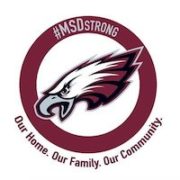All Children Can Plan, Organize and Complete… In All Facets of Their Lives
Many young people have difficulties developing the executive functioning skills they desperately need. Those children with ADHD and many learning challenges have deficits in being able to solve problems, plan, organize and self-regulation. Even those children without an ADHD diagnosis may have heightened roadblocks and delays during COVID times and other times of stress.
What is “Executive Dysfunction”?
Children, teens and young adults, may experience distress when it comes to being self-aware, managing their inhibitions, with their non-verbal working memory, being able to self-regulate their emotions, as well as plan, initiate, follow through and solve problems.
Here’s are several ideas to help your child gaining more control over their executive functioning type challenges and taking strides toward independence along the way.
- Accountability- Just because they may have difficulties, does not mean they are not responsible for themselves; we have to be responsible as well and see to it that they learn the “tools” the need to develop.
- Write It Down- As our children get older, life becomes more challenging and they become responsible for much more of their lives. Many of our children think they can remember everything and will fight against making lists and writing things down.
- Use Time Reminders- There are many different systems our kids can use to remind themselves of tasks to be done and when to start and stop preferred and non-preferred tasks. It is very easy for our children to lose track of time (time-blindness), so help them learn how to take charge of their time.
- Offer Rewards, No, Not Bribes- Reward effort and consistency in adapting their behaviors. Rewarding is different than bribing and will become a key life strategy. Just think, how many of us would have gone to work today if we were not going to be rewarded with a paycheck… Bribery is coercion, it doesn’t last.
- Make All Types OF Learning, Hands On- Many children, teens and young adults with and without ADHD are visual and kinesthetic learners, meaning they learn best by seeing and touching as they learn. Oral lessons, such as lectures (virtual classrooms) are the most challenging way to learn for most people. The next time you ask your kid to do something, try putting the request on paper or on a whiteboard, have them rewrite and rework it, quite often they will be more responsive.
These are just several suggestions to help your child, teen or young adult who is struggling during this time of a pandemic. Think “out -of-the-box” to help your kid develop the lifelong success skills they will value as they mature and become more independent. Those parents who learn more about why their children operate the way they do are often the happiest.
Dr. Eric J. Nach, Ph.D., M.Ed., A.S.D.C., is a Developmental and Behavioral Specialist and since 2012 has been the Founder and President of the Support for Students Growth Center in Boca Raton, FL, where they provide social, academic, behavioral and emotional support services online Nationwide and worldwide.





